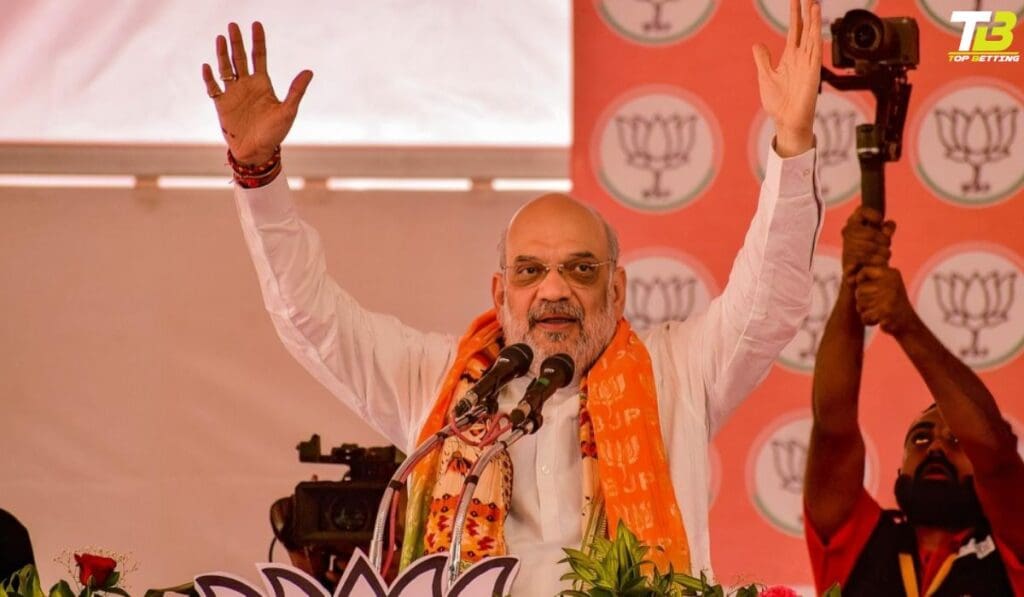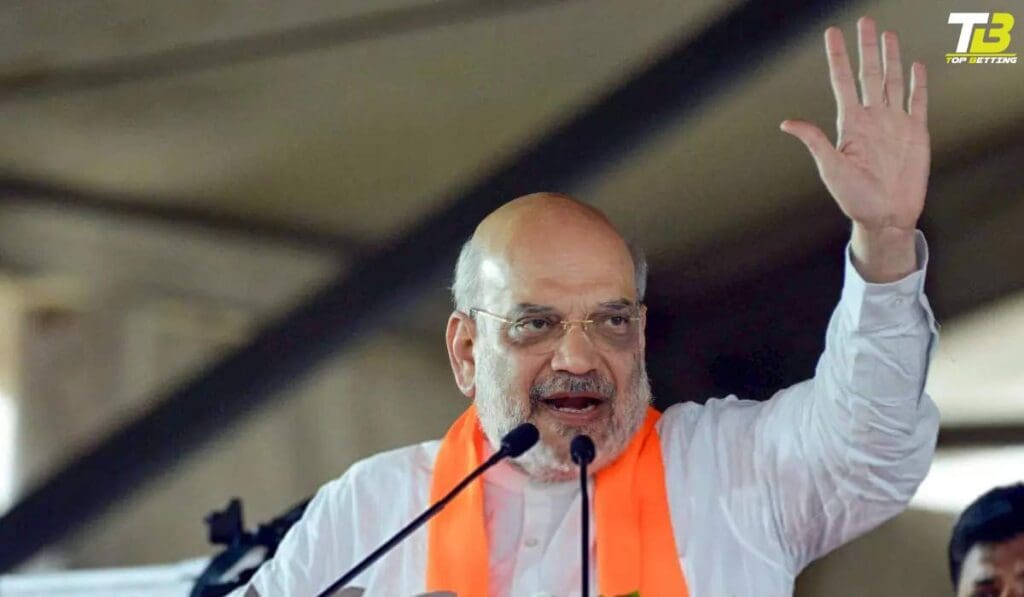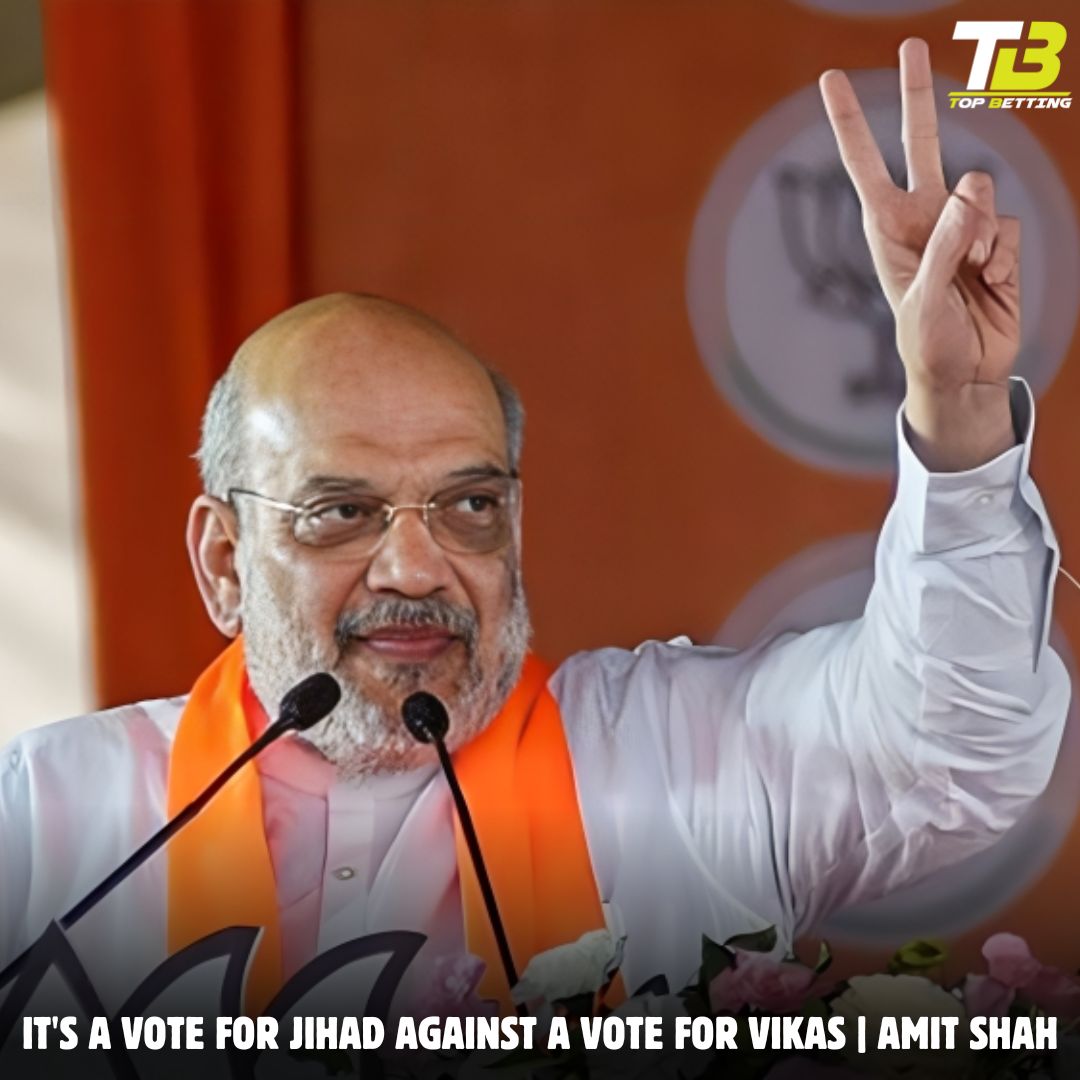
It’s a vote for jihad against a vote for Vikas | Amit Shah
Introduction
The Indian political landscape is once again ablaze with heated rhetoric as the country gears up for the highly anticipated 2024 Lok Sabha elections. In the midst of this charged atmosphere, Union Home Minister Amit Shah has ignited a firestorm with his controversial remarks during a campaign rally in Telangana’s Bhongir constituency. Declaring the upcoming polls as a battle between “vote for jihad” and “vote for vikas,” Shah has drawn sharp reactions from opposition parties, setting the stage for a high-stakes ideological clash.
The Backdrop: Telangana’s Political Landscape
Telangana, a state carved out of the erstwhile Andhra Pradesh in 2014, has emerged as a crucial battleground in the upcoming general elections. With 17 Lok Sabha seats up for grabs, the state has become a hotbed of political activity, with the ruling Bharat Rashtra Samithi (BRS), the Bharatiya Janata Party (BJP), and the Indian National Congress (INC) vying for supremacy.
The Key Constituencies to Watch
Among the 17 Lok Sabha seats in Telangana, a few constituencies have garnered particular attention. The high-profile Hyderabad seat, where the BJP’s Madhavi Latha is set to take on the All India Majlis-e-Ittehadul Muslimeen (AIMIM) chief Asaduddin Owaisi, is widely seen as a must-watch contest. Additionally, the Malkajgiri, Secunderabad, and Chevella constituencies are expected to witness fierce battles between the major political players.
Amit Shah’s Inflammatory Rhetoric
Against this backdrop, Amit Shah‘s fiery speech in Bhongir has sent shockwaves through the political landscape. The Union Home Minister’s incendiary remarks, which pit “vote for jihad” against “vote for vikas,” have ignited a heated debate and drawn strong reactions from the opposition.
Invoking the “Vote Jihad” Narrative
Shah’s invocation of the “vote jihad” narrative is not a new tactic in the BJP’s playbook. Just two days prior, Prime Minister Narendra Modi had raised the same issue during a rally in Madhya Pradesh’s Khargone. This language, which paints the opposition as purveyors of religious extremism, is a deliberate attempt to polarize the electorate and consolidate the party’s Hindu support base.
Framing the Election as Modi vs. Gandhi
Amit Shah further emphasized that the 2024 election is a contest between Prime Minister Narendra Modi and Congress leader Rahul Gandhi, portraying it as a battle between the BJP’s “Bharatiya guarantee” and the Congress’s “Chinese guarantee.” This framing is designed to reinforce the BJP’s nationalist credentials and cast the opposition as being soft on India’s adversaries.
The Opposition’s Response
The opposition parties have wasted no time in condemning Amit Shah’s remarks, accusing the BJP of resorting to divisive tactics to divert attention from pressing issues such as unemployment, inflation, and the Adani-Ambani controversy.
Priyanka Gandhi’s Scathing Rebuke
In a fiery address in Raebareli, Congress leader Priyanka Gandhi Vadra lambasted the Central government over the rising cost of living and the lack of job opportunities. She also criticized the BJP’s handling of cases of violence against women, drawing parallels to the Hathras and Karnataka incidents.
Samajwadi Party’s Condemnation
The Samajwadi Party (SP), a key member of the INDIA alliance, has also weighed in on Amit Shah’s comments. SP leader Ameeque Jamei criticized Sam Pitroda, a close aide of the Gandhi family, for his remarks on India’s diversity, stating that Pitroda’s statement has given “life to BJP’s campaign.”
328 Lok Sabha seats up for grabs, the Congress party allots 101 to its allies.
In a legislative election, the Congress is running for less than 400 Lok Sabha seats for the first time. It is running for 328 seats, which is 93 fewer than it did in 2019. One major factor is the need for coalitions; the party has ceded up to 101 of the seats it ran for in 2019 to its allies in the INDIA bloc.
The Congress is only running for additional seats in Odisha and Karnataka. This time, it is running for the lone seat in Mizoram; in 2019, it supported an independent. The party is running for all 28 seats in Karnataka this time, as opposed to just 21 in 2019. JD(S), its ally at the time, had run for the remaining seats. Compared to 18 seats in 2019, it is running for 20 seats in Odisha.
If not for the party’s candidate in Surat being rejected as a nominee and its candidate in Indore withdrawing, the party would have run candidates in 330 seats.
The Broader Implications
Amit Shah’s inflammatory rhetoric and the ensuing political storm have far-reaching implications for the upcoming Lok Sabha elections and the future of India’s democracy.

The Specter of Communal Polarization
The BJP’s attempt to frame the election as a battle between “vote for jihad” and “vote for vikas” raises concerns about the potential for increased communal tensions and the further polarization of the electorate along religious lines. This strategy, if successful, could have dire consequences for the country’s social fabric and its commitment to secularism.
The Challenge of Upholding Democratic Ideals
The opposition’s response to Amit Shah’s remarks underscores the urgent need to safeguard the integrity of the electoral process and ensure that the campaign discourse remains focused on substantive issues that matter to the people. The ability of India’s democratic institutions to withstand the onslaught of divisive politics will be put to the test in the coming months.

Conclusion
As the 2024 Lok Sabha elections draw near, the political battle in Telangana has taken on a high-stakes, ideological dimension. Amit Shah’s incendiary remarks have reignited the debate over the role of religion in Indian politics and the fragility of the country’s social harmony. The onus now lies on all political parties to rise above partisan interests and uphold the democratic principles that form the bedrock of India’s vibrant democracy.











